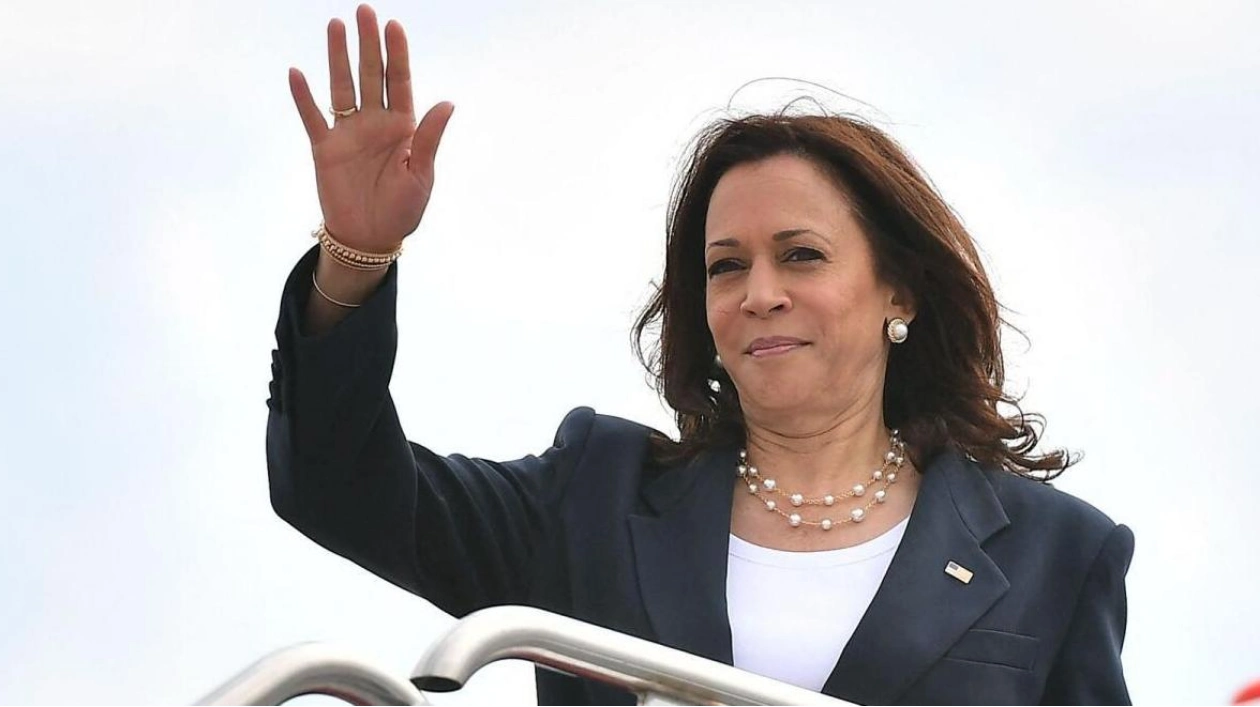Vice-President Kamala Harris is anticipated to adhere primarily to Joe Biden's foreign policy framework on pivotal issues like Ukraine, China, and Iran. However, she might adopt a firmer stance towards Israel regarding the Gaza conflict if she succeeds Biden as the Democratic nominee and secures victory in the November US election.
As the leading candidate for the nomination following Biden's withdrawal and endorsement on Sunday, Harris would leverage her hands-on experience, established personal connections with global leaders, and her understanding of international affairs acquired through her Senate tenure and as Biden's deputy. Yet, facing Republican candidate Donald Trump, she would also face a significant challenge—the problematic situation at the US-Mexico border, a recurring issue for Biden and a major campaign focal point. Harris was initially assigned to tackle the underlying causes of high irregular migration, and Republicans have attempted to pin the issue on her.
Analysts suggest that a Harris presidency would closely mirror a second Biden administration. "She might be more dynamic, but don't expect any immediate substantial changes in Biden's foreign policy," commented Aaron David Miller, a former Middle East negotiator for both Democratic and Republican administrations. Harris has indicated her commitment to Biden's strong support for NATO and continued backing for Ukraine against Russia, contrasting sharply with former President Trump's intentions to fundamentally reshape the US relationship with the alliance and his skepticism about future arms supplies to Kyiv.
As a trained lawyer and former California attorney-general, Harris initially struggled to establish her role during the first half of Biden's term, particularly burdened with a significant part of the complex immigration portfolio amid record border crossings. This followed a lackluster 2020 presidential campaign. If nominated, Democrats hope Harris will more effectively articulate her foreign policy objectives.
In the latter half of Biden's presidency, Harris—the nation's first Black and Asian American vice-president—has enhanced her profile on issues from China and Russia to Gaza, becoming a familiar figure to many global leaders. At the Munich Security Conference, she delivered a robust speech condemning Russia's attack on Ukraine and affirming an "ironclad" US commitment to NATO's Article 5 mutual defense clause. The Kremlin responded that Harris had made no significant contributions to Moscow relations except for unfriendly statements towards Russia, accusing it of a "barbaric and inhumane" war in Ukraine.
On China, Harris has consistently aligned herself with Washington's bipartisan consensus on countering China's influence, particularly in Asia. She is expected to uphold Biden's approach of confronting Beijing when necessary while exploring areas for cooperation. Harris has undertaken several trips to strengthen regional ties, including a visit to Jakarta to represent Biden at an ASEAN summit, where she criticized China's coercive tactics in the South China Sea.
Biden also entrusted Harris with missions to reinforce alliances with Japan and South Korea, concerned about Trump's commitment to their security. "She showed enthusiasm for promoting Biden's focus on the Indo-Pacific," noted Murray Hiebert, a senior associate at the Center for Strategic and International Studies. Despite not matching Biden's extensive diplomatic experience, Harris performed adequately, though she has occasionally made verbal mistakes, such as mistakenly referring to a US "alliance with the Republic of North Korea" during a visit to the DMZ.
If Harris becomes the Democratic nominee and overcomes Trump's lead in pre-election polls to win the presidency, the Israel-Palestinian conflict, especially if the Gaza war continues, would be a high priority. Although she has generally supported Israel's right to defend itself, Harris has occasionally criticized Israel's military tactics more strongly than Biden. She has not ruled out "consequences" for Israel if it escalates its attacks in Gaza.
Despite lacking Biden's deep personal connection to Israel, Harris maintains closer ties with Democratic progressives, some of whom advocate for conditions on US weapons shipments to Israel due to concerns over Palestinian civilian casualties. However, analysts do not foresee a significant shift in US policy towards Israel, America's closest Middle East ally. Halie Soifer, Harris' national security adviser during her early Senate years, emphasized that Harris' support for Israel is as strong as Biden's.
Harris is scheduled to meet with Israeli Prime Minister Benjamin Netanyahu during his Washington visit this week, marking her first interaction with a foreign leader since Biden's re-election bid ended. She is also expected to maintain a firm stance against Iran, whose recent nuclear advancements have drawn increased US condemnation. The potential weaponization of Iran's nuclear program could pose an early significant challenge for a Harris administration, especially if Tehran tests the new US leadership. Despite Biden's disinterest in resuming negotiations with Tehran, Harris would likely refrain from making major overtures without clear signs of Iranian concessions.






